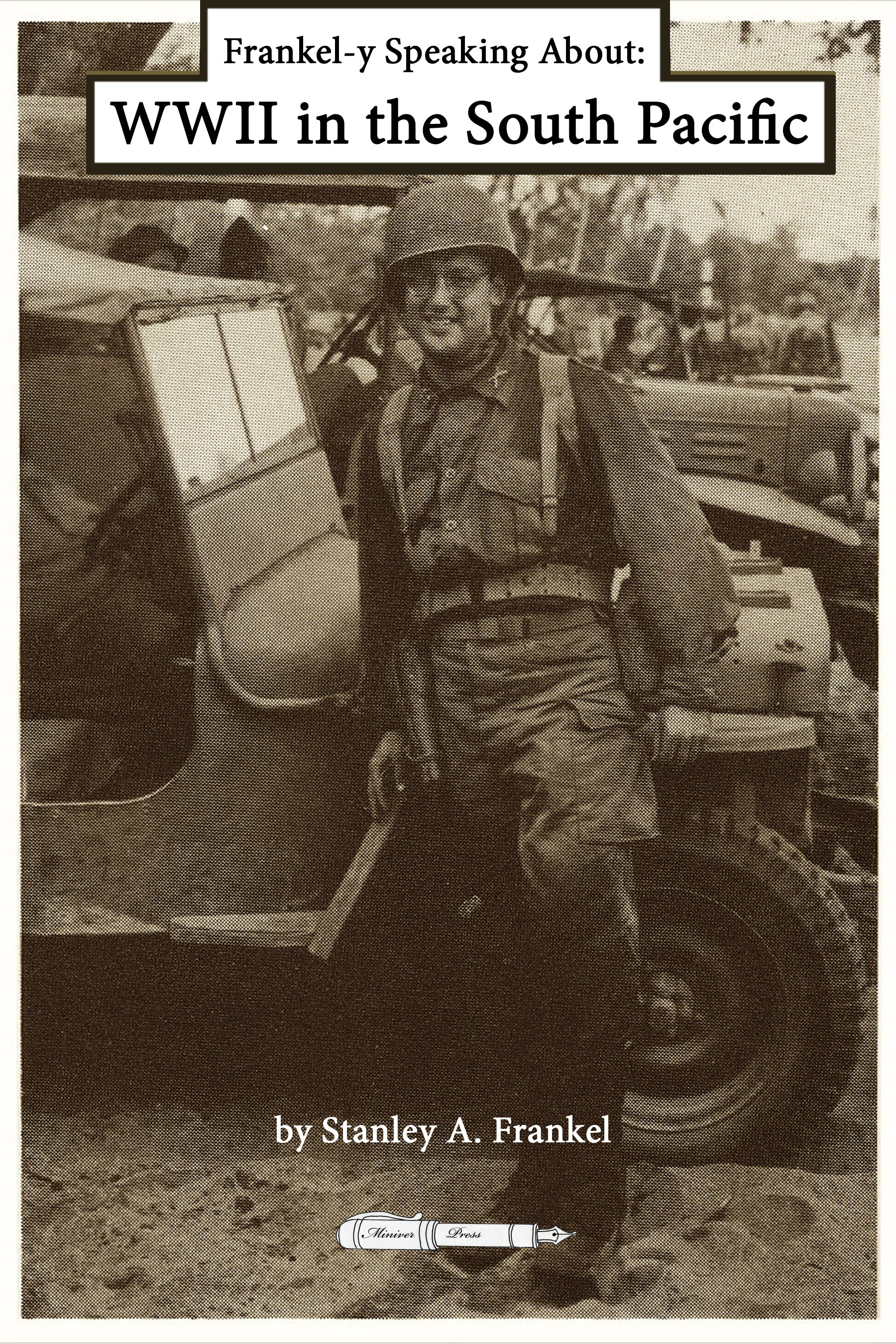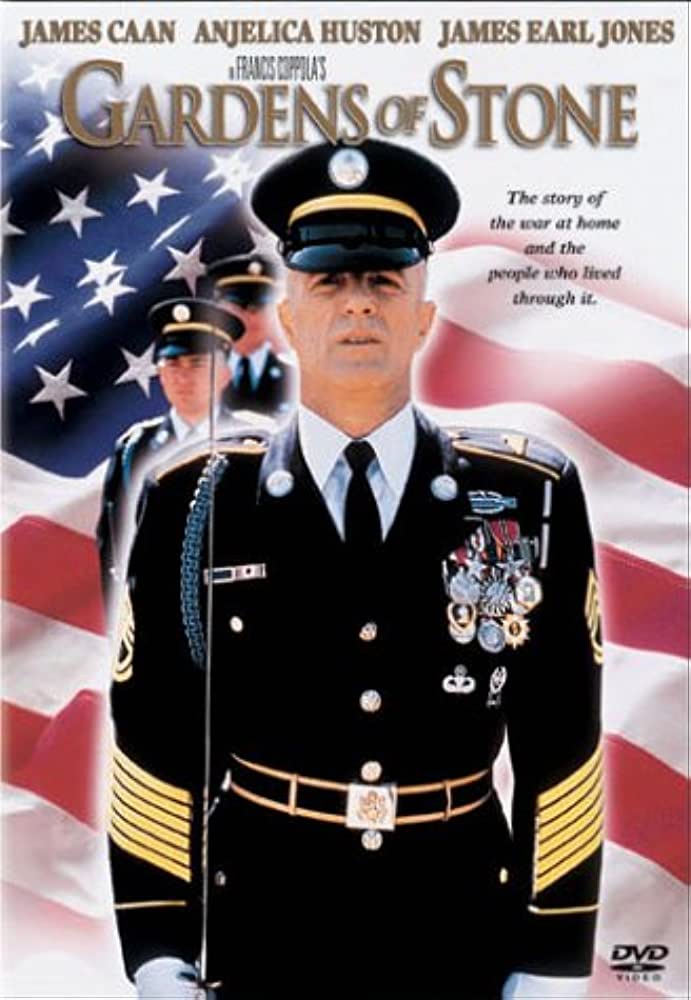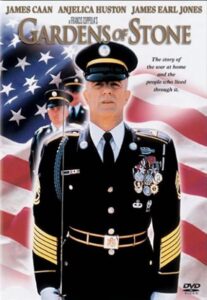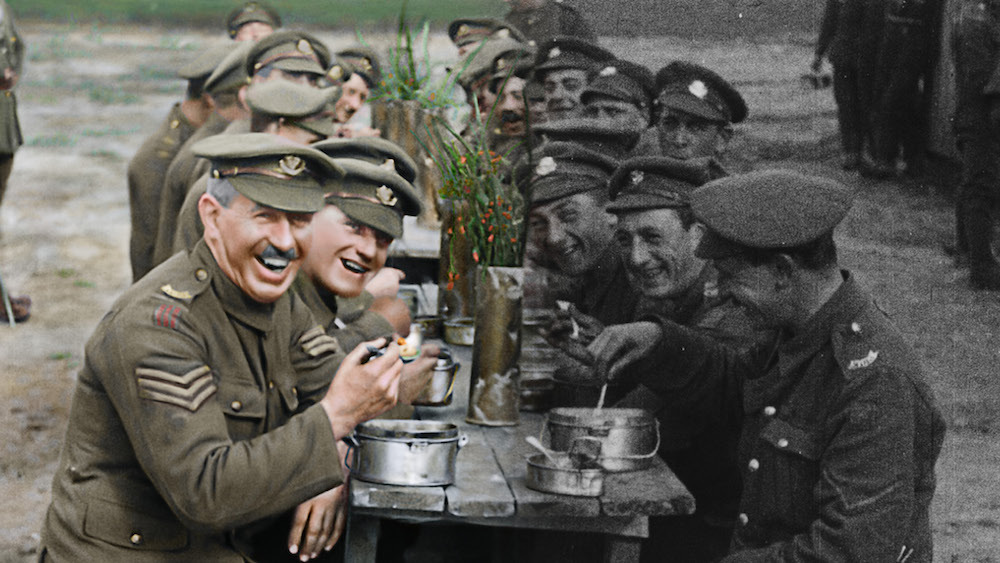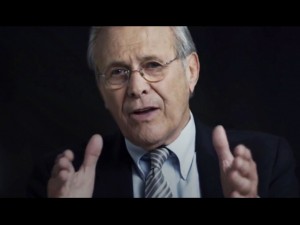Two WWII Books by Those Who Were There for Veterans Day
Posted on November 10, 2024 at 9:25 am
From Miniver Press:
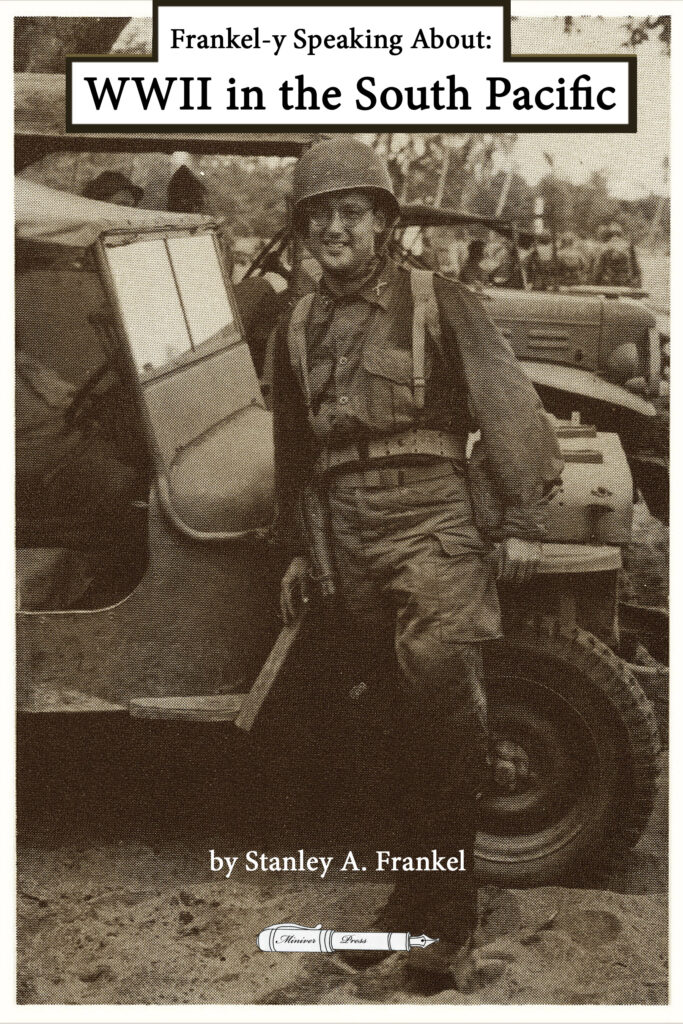
Frankel-y Speaking About WWII in the South Pacific Stanley Frankel didn’t want to be a soldier. But the draft board had different plans. The leader of college protests against the US entering WWII found himself in the 37th Infantry Division, shipped to the Pacific Theater. While in the army, he wrote journal entries, letters to his dear Irene, and articles that slipped past the censor to be published in newspapers and magazines in the US while the war was raging. Frankel served from 1941 to 1946, and was then ordered to stay on after the war as part of a team tasked with writing the historical account of his division. After that he became a successful advertising executive, award-winning professor, political speechwriter for national candidates, and beloved husband, father, and grandfather.In this memoir, Frankel tells his story interspersed with in-the-moment journals, letters, and articles he wrote while stationed in the Pacific. Take a journey through time with this raw first-hand account, and experience what it was like to be in the jungles and battles of an intense and brutal part of World War II.
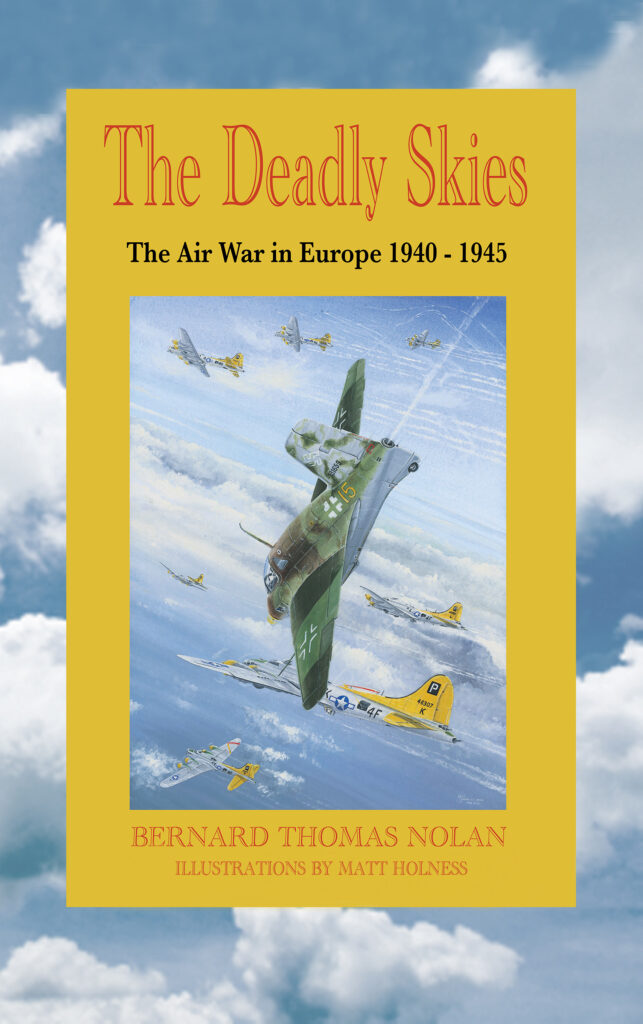
The Deadly Skies: The Air War in Europe 1940-1945 The history of air combat in Europe during WWII is grippingly described by a man who was there and who has had decades of experience and research to put his experiences in perspective. Focusing on the Royal Air Force, the U.S. Army Eighth Air Force and the Luftwaffe, the book covers how the WW II air campaign in Western Europe unfolded, how it ended, and its cost in terms of human life – not only for the aircrews in those unfriendly skies, but the innumerable innocents who suffered through the carnage in European cities caused by bombing. The aircraft and equipment, the battles, the strategy, and the people are all described by Bernard Nolan with the insight of an insider and the expertise of a scholar, and with detailed illustrations from aviation artist Matt Holness. From Dunkirk and the Battle of Britain to D-Day, B-17s, B-24s, P-47s, P-51s, and Spitfires, this book takes the reader inside the air battles that played a decisive role in WWII. Chapters sections include: The Bomber Will Always Get Through, The Schneider Trophy , The Messerschmitt Bf 109, Dunkirk, Unternehmen Seeloeven (Operation Sea Lion), Adlerangriff (Eagle Offensive), Chain Home Radar System, Adlertag (Eagle Day), Bombs Fall On London, Goering Blinks, The Hardest Day, Blitzkrieg, Hitler “Postpones” The Invasion The Battle Of Britain Ends, RAF Bomber Command, The Butt Study, The Casablanca Conference, Happy Valley, The Dam Busters, The Battle Of Berlin, Dresden, The Norden Bombsight, Superchargers, The B-24, The Fw 190, Regensburg-Schweinfurt

